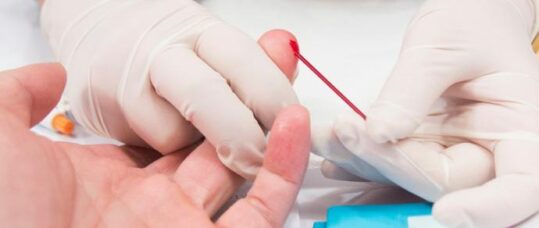Nurse-led HIV screening in general practice is ‘effective’, research suggests

Nurse-led HIV screening for new patients is ‘effective’ in routine care within general practice, new research has found.
The study, co-led by Queen Mary University of London and University College London, showed that nurse-led HIV screening in primary care increases testing rates, improves detection and leads to earlier diagnoses.
It found that diagnosis rates doubled in practices that offered screening.
The researchers concluded that practices in urban areas with higher HIV prevalence should ‘urgently’ implement HIV screening in primary care.
The paper, published in Lancet’s clinical journal EClinical Medicine last week, looked at three cohorts of general practices in east London.
Related Article: Prescribing in England to be led by a single national formulary
Patients in the first cohort, made up of 19 practices between 2010 and 2012, were offered HIV screening while staff received one-off training plus regular support.
A similar trial was run in a second cohort of 13 practices between 2012 and 2014 – but while staff received initial training, no regular support was offered.
The third was a control group, run in 10 practices between 2009 and 2010.
The results from the first two cohorts both showed ‘comparable’ improvements over the control group, said the study authors.
The first cohort saw increases in the number of HIV tests and the number of diagnoses while the CD4 count – the cell that the virus kills – was found to be high at diagnosis, suggesting that the infection was picked up early in the disease’s progression.
Meanwhile, compared to practices that received no intervention, the second cohort saw a 55% increase in HIV testing, 106% higher diagnosis rates and a 35% boost in the CD4 count at diagnosis.
However, the authors cautioned that there is a wide range of confidence levels around data on diagnoses rates and CD4 counts, meaning results are ‘suggestive but not conclusive’.
Related Article: Advice on Guillain-Barré risk for adult RSV vaccine updated by MHRA
Screening must be ‘urgently’ implemented
HIV testing rates in general practices are low despite testing being recommended in UK and international guidelines, noted the authors.
A lack of screening has been found to lead to later HIV diagnoses, poorer clinical outcomes, higher care and treatment costs, and boosts the chances of a person passing on the virus, they explained.
Study co-lead Dr Werner Leber, a GP and clinical lecturer in primary care at Queen Mary University of London, said that the study showed that the intervention is ‘effective’ in GP practices.
‘We found that offering HIV tests to new patients did pick up previously undiagnosed cases of HIV,’ Dr Leber added.
Related Article: Quick quiz: Management of COPD
Most of the new diagnoses made during the study were among people in groups at higher risk of late diagnosis: heterosexuals, and black African and Caribbean adults.
These groups are under-represented at sexual health services where they would be offered HIV testing, which can mean they are often diagnosed later.
Professor Chris Griffiths, Director of the Institute of Population Health Sciences at Queen Mary, said: ‘General practices across London and in urban areas with higher HIV prevalence in the UK and beyond need urgently to implement HIV screening in routine care. Screening is a key tool which can help realise the goal of eradicating HIV.’

See how our symptom tool can help you make better sense of patient presentations
Click here to search a symptom


Nurse-led HIV screening for new patients is ‘effective’ in routine care within general practice, new research has found.



